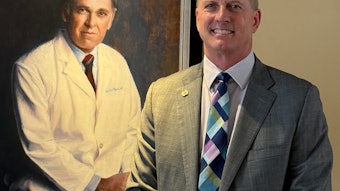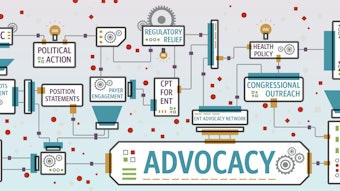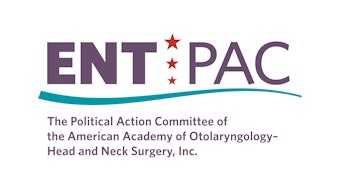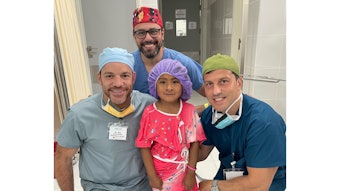Guiding Older Patients through Tough Treatment Decisions and End-of-Life Care
End-of-life discussions are difficult, but they can significantly improve a patient’s quality of life.
READ ALL ABOUT IT! This article was originally published in the Meeting Daily, the official daily newsletter for the Academy’s Annual Meeting. Peruse coverage of the 2023 AAO-HNSF Annual Meeting & OTO Experience as you plan your Extraordinary Experience at the 2024 Annual Meeting September 28 – October 1 in Miami Beach, Florida.
It is expected that by 2030, one in five U.S. residents will be age 65 or older. This means more patients with head and neck cancer, as well as terminal illnesses such as Alzheimer’s Disease. By 2050, it is projected that 14 million Americans will live with Alzheimer’s at a cost of care as high as $1.1 trillion. A clearer understanding of when and how to initiate terminal, end-of-life discussions, including hospice and palliative care, is needed.
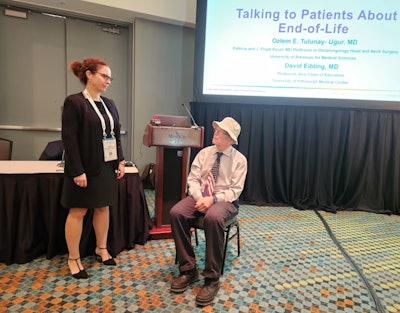 Dr. Tulunay-Ugur and Dr. Eibling role-play a doctor/patient discussion on terminal, end-of-life decisions.
Dr. Tulunay-Ugur and Dr. Eibling role-play a doctor/patient discussion on terminal, end-of-life decisions.
The presentation began with a role-play scenario of a 76-year-old patient with metastatic oropharyngeal squamous cell carcinoma and a new neck node and recent cough meeting with his head and neck surgeon to discuss the results of his recent fine needle aspiration. Dr. Tulunay-Ugur and Dr. Eibling demonstrated what and how to have individualized discussions with patients in end-of-life situations.
Setting realistic expectations is crucial. Often, when patients learn that they are going to start receiving chemotherapy, for instance, many may expect that the treatment will be successful, and that they will live. Likewise, doctors often overestimate the chances of success. “Sixty-three percent of the time, we [doctors] were overly optimistic of the results,” explained Dr. Tulunay-Ugur. “Only 17% of the predictions were overly pessimistic. You have to not kill the hope of the patient, but you also have to be truthful in what you’re offering them.”
Dr. Eibling went on to explain, “We want to maintain hope not only for our patients but also for ourselves as physicians providing care. But the truth really matters and, in the end, what the patients really want is for us to be honest and truthful.” He also laid out what many of patients’ goals, particularly those with cancer:
- To be cured
- To have no pain
- To be able to swallow and breathe
- To look normal
- To be with family and friends
- To be like they were before they got sick
“But even when a cure is impossible, they still have preferences, and it’s our responsibility to find out what those preferences are.” Adequate time and preparation for patients to “get their house in order” is crucial. “Even though an individual has cancer, they are still a person and can still contribute to and involve themselves in life as much as they are able for as long as they are able,” he said.
Dr. Tulunay-Ugur described a strategy to the presentation attendees for negotiating end-of-life discussions and care called S.P.I.K.E.S.
Setting
Privacy is essential, of course. Sit with the patient and spend time with them, do not hover or speak down to them. Opening with a handshake may be helpful if both patient and physician are comfortable. Ask if they want family members involved in the discussion, even on FaceTime.
Perception
Ask what their understanding of their situation is. They have so much information to absorb; it can be difficult to remember it all when they leave the office.
Investigate
Sometimes patients want to know everything about their situation, but you may have patients who do not want all the details. In that case, is there another family member who will be managing their care more closely? Of course, in cases of dementia, you need to rely heavily on other members of the family or close caregivers.
Knowledge
Tailor your language to the individual and their level of understanding.
Empathy
The reason we do this job is that we love taking care of our patients. Ask them, “What is the hardest part of this for you? How are you managing this?” They may not be afraid of death, but they may be afraid of leaving a loved one alone. It’s also okay to be sad with them, too.
Summary
At the end of your encounter, it’s important to check in with your patient, restate what’s happening next, and make sure they understand why you’re doing it. Ask them if they understand.
Dr. Tulunay-Ugur and Dr. Eibling closed the presentation with another role play along with feedback and questions from the audience. They emphasized that it’s not just about the quality of a patient’s life, but also the quality of their death.







